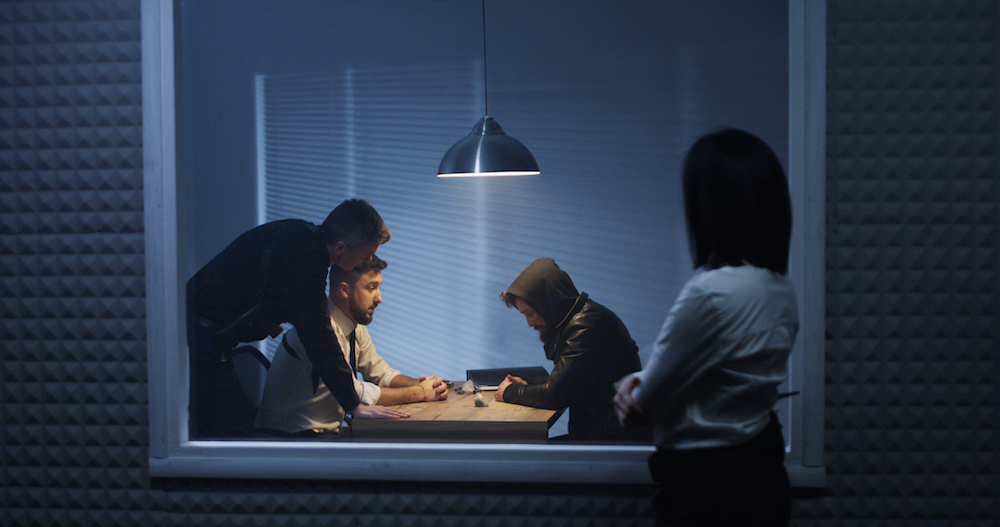Can the Police Lie to You?

Many people naively believe that the police cannot lie to citizens while performing their jobs. In reality, they can and often do lie to suspects to gain a confession or obtain evidence in a case. Police lies can trap innocent people into confessing to a crime they did not commit. The result is a miscarriage of justice for the innocent as well as the victims to the crime.
Is it legal for the police to lie to suspects in a crime? What kinds of lies are the police legally allowed to tell? What should you do if the police lied to you to gain a confession or conviction in a case?
Law enforcement are able to tell mistruths in order to obtain their desired outcomes. This tactic is commonly used in the interrogation room when they are trying to pin a crime on a suspect. Often, they firmly believe that a person is guilty, and believe that telling a lie to get the confession is simply a means to an end.
Top Lies That Police Tell to Suspects
“We have your DNA (or fingerprint) evidence at the scene of the crime.”
Police may tell a suspect that they have found physical evidence such as DNA or fingerprints at the scene when they have not. This type of evidence takes time to uncover and procure; police will rarely have access to this evidence for some time. However, this lie can be very convincing for suspects who are under pressure to confess.
“This conversation will be off the record.”
A skilled criminal defense attorney will tell any defendant that they should consider everything they say to a police officer as on the record. In fact, a defense attorney would say that a defendant should never speak to police officers without their attorney present.
“If you cooperate, we will give you a deal.”
This is a common lie that we frequently see in television crime shows. In reality, the police have nothing to do with sentencing and do not have the power or authority to recommend or deliver a lighter sentence. The District Attorney handles sentencing.
“Your friend confessed to the crime and pointed to you as his accomplice.”
Falsely claiming that an accomplice or eye witness has pointed the finger at the suspect is another common tactic police may use to obtain a confession. They may also say that they have damning evidence, when in fact, they have no evidence against you. By doing this, they hope that you will make admissions that they can use against you.
When Does a Police Lie Cross the Line?
While the police are often legally allowed to tell lies to suspects, there are some limits. If a suspect is in custody, law enforcement must read them their Miranda rights. These statements inform the suspect that:
- They have the right to remain silent
- Everything they say can be used against them in a court of law
- They have the right to an attorney
- If they cannot afford an attorney, one will be appointed to them
In the case of a confession, if there is a question about the legality of an interaction with law enforcement, the court must consider several factors including:
- The severity of the lie
- Was there misconduct during the interrogation, such as extensive time in questioning, was the suspect provided time for basic needs such as the use of the toilet and access to water or food
- What is the makeup of the suspect as related to their intellectual abilities, age, mental and physical health
What Should You Do If You Are Questioned By Police?
If you have been taken into custody and questioned by police, keep in mind that the police can tell mistruths to obtain evidence or coerce a confession. You should remain silent until your attorney is present, no matter what deals they offer or evidence they produce.
The Law Office of Joni Eisenstein can help you navigate police interrogations and provide you with solid counsel to help you protect your rights and your freedom. Call our office today to schedule your free consultation with our experienced and reputable criminal defense attorney. Joni Eisenstein has years of experience dealing with San Diego police interrogations and protecting the rights of suspects in a crime.
